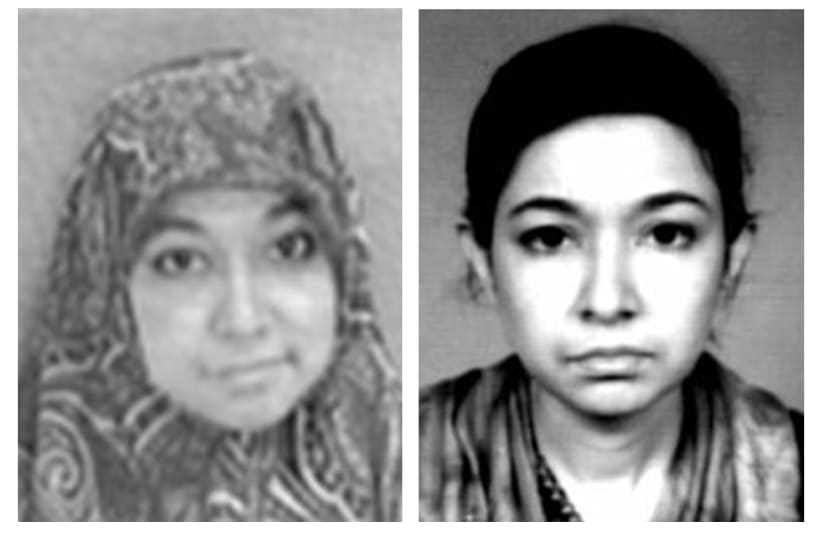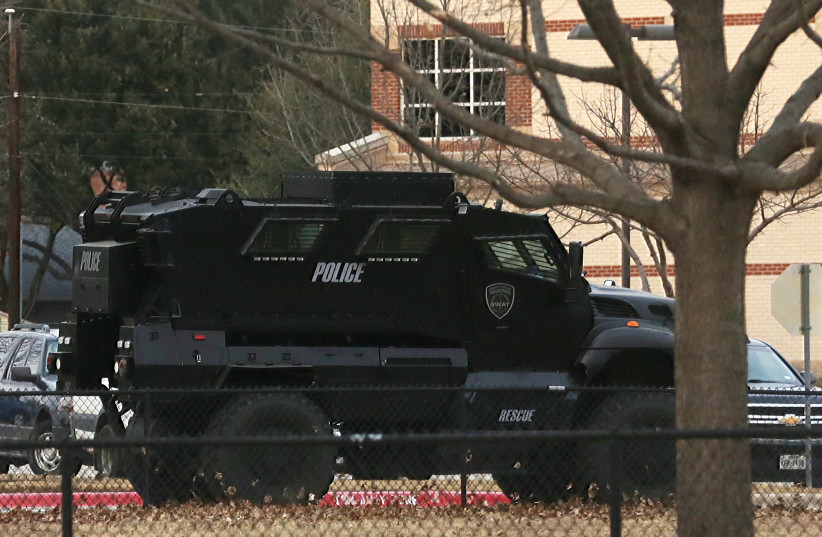A man on Saturday took multiple hostages at the Beth Israel Synagogue in Colleyville, Texas, demanding the release of Aafia Siddiqui, who is currently serving an 86-year prison sentence for the attempted murder of American troops and FBI agents who arrested her.
Although initial reports suggested the hostage-taker was Siddiqui’s brother, a former lawyer of her real brother claimed that he was not involved in the hostage situation, according to The Daily Beast news site. Upon hearing about the incident, she released a statement telling the hostage-taker to stand down, it reported.
Aafia Siddiqui is a Pakistani neuroscientist who moved to the US in 1990 on a student visa and subsequently studied at the University of Houston before transferring to MIT, where she triple-majored in biology, anthropology and archaeology, later receiving her PhD from Brandeis University, as reported in Peter Bergen’s book The Longest War: The Enduring Conflict Between America and Al-Qaeda. After marrying anesthesiologist Amjad Mohammed Khan in an arranged marriage, Siddiqui had two sons and a daughter in 1996, 1998 and 2002.
After the 9/11 terrorist attacks, Siddiqui insisted to her husband that the family move to Pakistan, and when they did, she wanted to move to the country’s border with Afghanistan to provide medical aid to Taliban militants fighting against the US, according to Harper’s Magazine.
After becoming increasingly interested in Islam and jihad, Siddiqui began to attract the attention of the FBI when she and her husband bought $10,000 worth of body armor, night-vision goggles and militant manuals such as Fugitive, Advanced Fugitive, The Anarchist’s Arsenal and How to Make C-4, according to reports in Harper’s, The Guardian and Boston Magazine.
Siddiqui’s marriage began to fall apart due to physical abuse from Khan, as well as her growing interest in jihad, until the couple divorced in 2002, according to Deborah Scroggins in Wanted Women.
Khan suspected that Siddiqui had become involved with extremist groups, and she did end up marrying suspected al-Qaeda member Ammar al-Baluchi in 2003. Baluchi is a nephew of 9/11 mastermind Khaled Sheikh Mohammed (KSM), according to the US Office of the Director of National Intelligence.
The US government alleged that Siddiqui was involved in a plot by an al-Qaeda cell to commit attacks in the US, the UK and Pakistan. The cell, led by KSM, planned to sabotage gas stations and underground storage tanks, and poison or destroy water-treatment facilities, Scroggins wrote.
When Siddiqui disappeared with her children on what she claimed was a trip to Islamabad, the FBI released a “worldwide alert” for her and Khan, according to Scroggins and the BBC.
In 2004, then-attorney-general John Ashcroft said Siddiqui was one of the suspects on the FBI’s list of the seven most-wanted al-Qaeda fugitives and was a “clear and present danger to the US,” Scroggins and The Los Angeles Times wrote.
Siddiqui was later arrested by US Army troops and FBI agents in Ghazni, Afghanistan. During her questioning, she allegedly picked up one of the soldiers’ rifles and fired two shots at them, shouting “Allah Akbar,” The New York Times reported. The soldiers successfully disarmed her.
Ariella Marsden contributed to this report.

